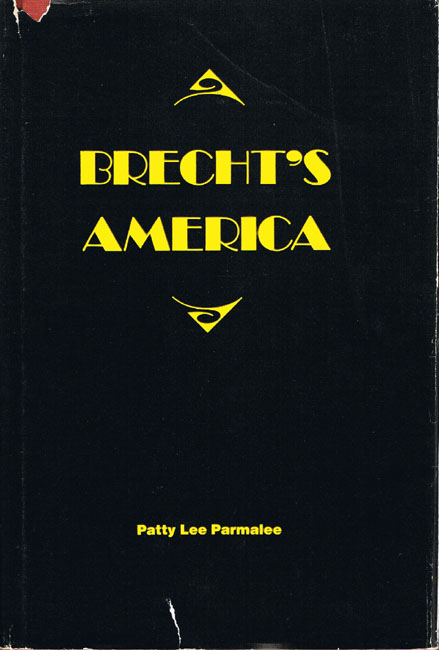Brecht’s AmericaPatty Lee Parmalee |
 1975 Literary Criticism/ European / German pp. 6x9 |
|||
|
read the full text of the book •
|
Nearly every critic who has written on Bertolt Brecht has noted that the America in which many of his plays are set is a strange, cinematic, almost mythical land in which gangsters are the principal folk heroes, boxing the primary national pastime, and jazz the chief cultural pursuit. But though Brecht’s portrayals of life in the United States were, in their distorting simplicism, clearly reminiscent of a familiar and persistent European stereotype, they transcend their origins in sometimes superficial impressions and commonplace assumptions, and bring to both his drama and its American setting the acuity of his precise perceptions. Dr. Parmalee undertakes to identify for the first time the principal literary sources from which Brecht’s conception of America was derived. In his early years, she finds, Brecht shared with most compatriots of his generation, locked in the prison that was Germany after the First World War, a fascination with that version of the American Dream first exported to Europe by Walt Whitman and domesticated by Karl May. But Brecht never succumbed totally to the cult-of-America fad practiced by his contemporaries; for his feeling towards the New World was always ambivalent, an uneasy simultaneity of attraction and revulsion of the kind Germans call Hassliebe. Brecht found peculiarly congenial the cruel impersonality of America portrayed by Upton Sinclair, Sherwood Anderson, Frank Norris, and others who depicted the New World, not as El Dorado, but as a harsh and unsparing arena that demanded hardness and boldness of those who would contend within it and who boasted a will to survive. It was for Brecht a fitting stage on which to dramatize the conflict between the individual and society that provided the precipitating dramatic event in all of his plays, and the major theme of his career. It was his attempt to write about the American economy in 1926 that first led Brecht to Marx, and the economic crash of 1929 and the Great Depression that followed it were to confirm him as a Marxist and to transform his cherished myth of a virile America. The nation that had symbolized a ruthless kind of strength, the system that though unjust was nonetheless progressive, became a decadent and doomed society. The profligacy and the conspicuous consumption that had exemplified and excused the savage vigor, unbridled impatience, and plundered wealth of the New World became, in Brecht’s later and altered view, the shameful and final excesses of an unsound structure built on an infirm base. The duality of Brecht’s love-hate affair with America was finally resolved; but a mutual loss was incurred. He lost the use of an American setting informed by the rich ambivalence of his contrary views; and the American nation was robbed of the fond stringency of one of its most trenchant critics. Patty Lee Parmalee holds a doctorate in comparative literature from the University of California at Irvine, and is a freelance writer and teacher. | |||

